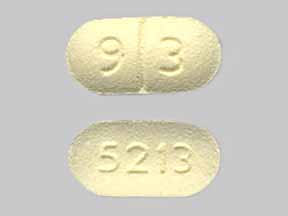Hydrochlorothiazide / Moexipril Side Effects
Medically reviewed by Drugs.com. Last updated on Sep 14, 2024.
Applies to hydrochlorothiazide / moexipril: oral tablet.
Important warnings
This medicine can cause some serious health issues
- Do not take if you are pregnant.
Use during pregnancy may cause birth defects or loss of the unborn baby.
If you get pregnant or plan on getting pregnant while taking this drug, call your doctor right away.
Serious side effects
WARNING/CAUTION: Even though it may be rare, some people may have very bad and sometimes deadly side effects when taking a drug. Tell your doctor or get medical help right away if you have any of the following signs or symptoms that may be related to a very bad side effect:
- Signs of an allergic reaction, like rash; hives; itching; red, swollen, blistered, or peeling skin with or without fever; wheezing; tightness in the chest or throat; trouble breathing, swallowing, or talking; unusual hoarseness; or swelling of the mouth, face, lips, tongue, or throat.
- Signs of high blood sugar like confusion, feeling sleepy, more thirst, more hungry, passing urine more often, flushing, fast breathing, or breath that smells like fruit.
- Signs of kidney problems like unable to pass urine, change in how much urine is passed, blood in the urine, or a big weight gain.
- Signs of fluid and electrolyte problems like mood changes, confusion, muscle pain or weakness, a heartbeat that does not feel normal, very bad dizziness or passing out, fast heartbeat, more thirst, seizures, feeling very tired or weak, not hungry, unable to pass urine or change in the amount of urine produced, dry mouth, dry eyes, or very bad upset stomach or throwing up.
- Cough that does not go away.
- Chest pain.
- Trouble passing urine.
- Pain when passing urine.
- Swelling in the arms or legs.
- Very bad belly pain.
- Any skin change.
- This drug can cause certain eye problems. If left untreated, this can lead to lasting eyesight loss. If eye problems happen, signs like change in eyesight or eye pain most often happen within hours to weeks of starting this drug. Call your doctor right away if you have these signs.
- Very bad and sometimes deadly liver problems have happened with this drug. Call your doctor right away if you have signs of liver problems like dark urine, feeling tired, not hungry, upset stomach or stomach pain, light-colored stools, throwing up, or yellow skin or eyes.
Other side effects
All drugs may cause side effects. However, many people have no side effects or only have minor side effects. Call your doctor or get medical help if any of these side effects or any other side effects bother you or do not go away:
- Cough.
These are not all of the side effects that may occur. If you have questions about side effects, call your doctor. Call your doctor for medical advice about side effects.
You may report side effects to the FDA at 1-800-332-1088. You may also report side effects at https://www.fda.gov/medwatch.
See also:
For healthcare professionals
Applies to hydrochlorothiazide/moexipril: oral tablet.
General adverse events
The most common adverse reactions were cough, dizziness, and fatigue.[Ref]
Other
- Common (1% to 10%): Fatigue, pain, flu syndrome, chest pain, peripheral edema, fever
Hydrochlorothiazide:
- Frequency not reported: Weakness[Ref]
Respiratory
- Common (1% to 10%): Cough, upper respiratory infection, rhinitis, sinusitis, bronchitis
Hydrochlorothiazide:
- Frequency not reported: Respiratory distress, pneumonitis, pulmonary edema[Ref]
Nervous system
- Common (1% to 10%): Dizziness, headache, vertigo, hypertonia
Hydrochlorothiazide:
- Frequency not reported: Vertigo, dizziness, headache, paresthesia[Ref]
Gastrointestinal
- Common (1% to 10%): Diarrhea, abdominal pain, dyspepsia, nausea
Hydrochlorothiazide:
- Frequency not reported: Pancreatitis, sialadenitis, vomiting, diarrhea, cramping, nausea, gastric irritation, constipation[Ref]
Metabolic
- Common (1% to 10%): Hyperuricemia, hyperglycemia, hypokalemia
Hydrochlorothiazide:
- Frequency not reported: Anorexia, hyperglycemia, hyperuricemia[Ref]
Genitourinary
- Common (1% to 10%): Urinary tract infection, impotence, pyuria
Hydrochlorothiazide:
- Frequency not reported: Glycosuria[Ref]
Dermatologic
- Common (1% to 10%): Rash
Hydrochlorothiazide:
- Frequency not reported: Stevens-Johnson syndrome, purpura, urticaria, rash, photosensitivity[Ref]
Cardiovascular
- Common (1% to 10%): Abnormal ECG
Hydrochlorothiazide:
- Frequency not reported: Orthostatic hypotension, necrotizing angiitis[Ref]
Hepatic
- Common (1% to 10%): Serum glutamic pyruvic transaminase (SGPT) increased
Hydrochlorothiazide:
- Frequency not reported: Intrahepatic cholestatic jaundice[Ref]
Musculoskeletal
- Common (1% to 10%): Back pain
Hydrochlorothiazide:
- Frequency not reported: Muscle spasm[Ref]
Immunologic
- Common (1% to 10%): Infection[Ref]
Hematologic
Hydrochlorothiazide:
- Frequency not reported: Aplastic anemia, agranulocytosis, leukopenia, thrombocytopenia[Ref]
Ocular
Hydrochlorothiazide:
- Frequency not reported: Transient blurred vision, xanthopsia[Ref]
Renal
Moexipril:
- Frequency not reported: BUN increased, serum creatinine increased[Ref]
Psychiatric
Hydrochlorothiazide:
- Frequency not reported: Restlessness[Ref]
References
1. (2001) "Product Information. Uniretic (hydrochlorothiazide-moexipril)." Schwarz Pharma
More about hydrochlorothiazide / moexipril
- Check interactions
- Compare alternatives
- Reviews (1)
- Drug images
- Dosage information
- During pregnancy
- Drug class: ACE inhibitors with thiazides
Patient resources
Other brands
Professional resources
Related treatment guides
Further information
Hydrochlorothiazide/moexipril side effects can vary depending on the individual. Always consult your healthcare provider to ensure the information displayed on this page applies to your personal circumstances.
Note: Medication side effects may be underreported. If you are experiencing side effects that are not listed, submit a report to the FDA by following this guide.

